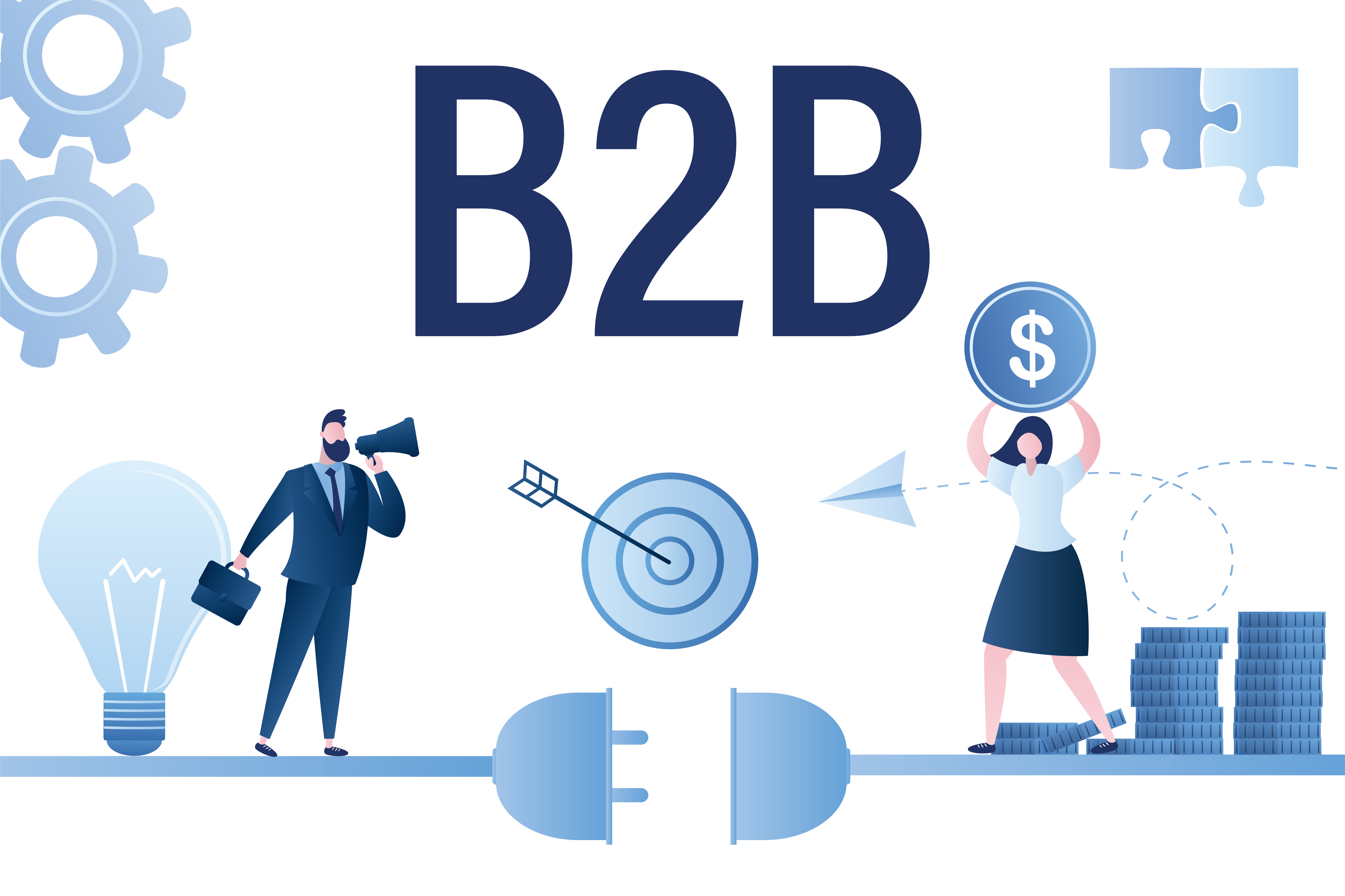What is a B2B marketplace?
In a B2B marketplace, sellers are typically manufacturers, suppliers, wholesalers, and brands, while the buyers are other businesses. This modern model has come a long way from the outdated methods of order forms sent via snail mail or platforms like eBay, offering B2B sellers a more efficient, global source of potential customers. By utilizing a B2B marketplace, companies gain access to an extensive network of businesses, expanding their reach in ways traditional methods simply can’t match.
Transactions in the B2B marketplace are processed online through a platform operated by the marketplace provider, which connects suppliers and consumers in one centralized space. This seamless connection helps streamline business transactions, simplifying communication and purchase orders, while providing access to new markets. Rather than targeting individual consumers one at a time, B2B marketplaces make it easy for businesses to sell directly to third-party sellers, wholesalers, and retailers, significantly expanding their customer base with less effort.
One of the biggest draws for businesses using B2B marketplaces is the diversity and scalability they offer. These platforms make it possible to increase visibility, marketing reach, and sales opportunities without needing to rely solely on SEO or traditional advertising. Additionally, B2B marketplaces reduce the friction often involved in negotiating deals between companies by providing a user-friendly, online space that’s accessible 24/7, allowing transactions to be made from anywhere in the world.
Beyond just increasing sales, B2B marketplaces can enhance the overall customer experience by providing detailed product information, facilitating real-time purchase order processing, and improving workflow efficiency. The marketplace can also offer businesses a deeper understanding of customer behavior by enabling customer segmentation and personalized marketing efforts.
While these platforms are ideal for product-based businesses, service-based companies—like those offering corporate wellness programs or catering services—can also thrive in a B2B marketplace, providing on-demand or subscription-based services. With the rise of technology and more digital commerce solutions, B2B platforms are rapidly evolving to meet the specific needs of the businesses they serve, continually improving to stay ahead of the competitive landscape.
Ultimately, B2B marketplaces offer a unique and efficient approach to selling goods and services to other businesses, distinguishing themselves from B2C eCommerce by focusing on bulk orders, negotiable prices, varied payment options, and more complex logistics. Business owners in the B2B space are increasingly looking for solutions that enable them to adapt to modern buyer expectations, and digital marketplaces are the ideal avenue for doing so.
The B2B marketplace platform: an omnichannel solution
There are so many moving parts in a B2B marketplace. The platform relies on competitive advantage and cutting-edge online processes to make it both unique and attractive, but also user-friendly. Different B2B ecommerce markets remain relatively the same across competing platforms, while the business’ target consumers may vary a lot.
All B2B marketplace platforms are built upon the foundation of creating an enjoyable and convenient interaction between businesses. They use customer data, automation, and bigcommerce strategies to meet these needs. This foundation for B2B marketplaces helps to create a calculated advantage for any business, regardless of what they are selling or looking to buy, and effectively meets customer needs from Gen Z to millennials to boomers. The platform has unique qualities that are tailor-made to provide each business with the tools they need to be successful. Some of those qualities are:
1) The vendor has control of their page and information — a good B2B marketplace allows e-commerce businesses and distributors to control their online store and what information is visible—it’s essentially virtual merchandising for online sales. They should have the ability to manage their supplier or consumer profile, content information, contact details, and price pages.
2) Transactions are done through self-service— most businesses prefer to process orders themselves rather than through another person. To make B2B marketplaces accessible to those people, providers have created features that enable a self-service model including onboarding to cut out time-consuming interactions when time is tight and allow for real-time transactions.
3) B2b marketplaces are highly responsive - B2B e-commerce sites need to be responsive and accessible to cater to the needs of the consumer. Most transactions involve an ecosystem that requires regular communication between the seller/sales team and consumer/business buyer concerning invoices, processing orders, or tracking shipments - all of which can be done through the B2B marketplace.
4) Data protection measures — businesses who have their information in an online program like a B2B marketplace are reassured that there are procedures in place to prevent data and information security issues.
5) Easy navigation ability — users like to be able to filter suppliers by price range, product availability, services available, and the brand quickly. A good B2B ecommerce solution will have a search and filter option.
6) Flexible technology that adapts as the market does — the market changes fast. Flexibility needs to be a priority. Both suppliers and consumers can trust that the platform they are using is flexible and customizable for them.
7) Flexible software options — B2B marketplaces are flexible in working with software that a business is already using for other tasks. This flexibility will equate to a more streamlined process for both the supplier and consumer.
8) Calendar synchronization and scheduling – Many services offered in the B2B marketplace can be booked right on the B2B marketplace platform at the time of the purchase. Appointments are easily tracked through a synchronized calendar that most sellers offer on their end of the transaction, or through integrating an existing software such as Google Calendar. This calendar synchronization allows both parties to book available services so double bookings or other scheduling conflicts are few and far between.
9) Consumer profiles as a marketing aid – Most consumers need to create a brief profile on a B2B marketplace to describe what they're looking to purchase. Over time, and as purchases are made, more details about the consumer will be added to their profile. The data describes what kind of purchases the consumer has made previously, which helps the supplier get a sense of who the consumer is. This, in turn, helps the supplier gain a bit of knowledge on the consumer profile that is generally interested in their products or services.
This serves the supplier as a marketing aid because it helps them get a general idea of who their clients are. It also better equips them to market themselves to new customers who have a similar consumer profile with their regular clientele. All the information that’s gathered in consumer profiling is invaluable to the supplier because it allows them to save money on marketing analytics.
10) Subscriptions – Platforms that offer a service that is done by independent contractors have the option to purchase a subscription. Subscriptions may be beneficial for both the supplier and B2B buyers. The consumer pays a flat fee to have a certain number of their services offered per month, at a discounted rate. The goal of using subscriptions for services is the ability to secure guaranteed business and reward businesses who use their service.
B2B ecommerce platforms for start-ups
Most up-and-coming B2B marketplace start-ups fall into two categories: niche sellers and market leaders. Niche sellers, just as the name describes, focus on a very particular market or group of people and they cater their business towards that group of people. Market leaders are businesses that are already large in terms of customer base and eCommerce traffic but continually try to gain even more traction by offering more variety to their current customers.
A B2B start-up (sometimes referred to as enterprise start-ups), are companies that are created and built to provide something for other businesses. A B2B company can also sell its products or services to individual consumers, but they're created to provide goods and services for other businesses.
An example of a market leader in a B2B marketplace is Amazon Business. While Amazon itself is categorized as a B2C business, a great majority of their sales are done B2B under the umbrella of Amazon Business. Amazon’s B2B marketplace provides consuming businesses with the pricing, selection, and convenience of Amazon, with deals available for bulk orders and discounts for subscribing regular customers – much like many other B2B marketplaces.
B2B start-up entrepreneurs may choose to sell their product or service on Amazon business (or Alibaba) as a first step because of its immense reach and popularity. Another benefit that Amazon Business has for start-ups is the opportunity to use its platform to research products and pricing before launching a new business. Following Amazon's lead, by 2023, at least 70% of businesses will be using B2B transactions.
The B2B marketplace gives a start-up business a head start in growing their business. As the start-up gains traction, they can analyze annual sales trends, keep an eye out for what performs well and what doesn't with competitors, and gain opportunities to test new product or service ideas on the B2B marketplace. The wealth of analytics and information that's made available to start-ups on the B2B marketplace will help to position the start-up as a market leader.
Start-ups and established businesses can also link their B2B online marketplace accounts to a net terms and credit management solution service like Resolve. Working with Resolve allows businesses to offer net terms to their ecommerce customers using all payment options.
Resolve also solves cash flow problems for ecommerce businesses by paying out up to 90% of an invoice within one business day while still allowing customers 30, 60, or even 90 days to pay.
SaaS (software as a service) on a B2B ecommerce website
Software as a service (saas) is a part of everyone’s daily lives, whether they know it or not. Essentially, it's a third-party application that can be subscribed to, and purchased entirely over the internet, with no physical connection or reliance on any computer in particular—it's all accessible through the ‘cloud,’ and is often purchased from an ecommerce platform. Most saas programs have automatic updates through the host, so there's less of a burden on the IT department of the subscribing business to ensure the system is always running smoothly.
Saas programs are always accessible and persistent, meaning that subscribers can access the saas service from any device with an internet connection without fear of it being down. There are downfalls that come with saas services, though. Subscribing businesses must rely on outside vendors for essential programs and have little control over service disruptions and changes.
Saas is cost-effective because it erases the expenses for licensing, installation, and manual updating. An excellent example of saas is Office 365, provided by Microsoft - where businesses subscribe and pay an annual fee to use all the applications within Office 365. Microsoft maintains its applications, all while providing a vital service to businesses. Saas services often operate as a pay-as-you-go service—meaning if the subscribing business uses the service more often, the bill will increase, and vice versa. Pay-as-you-go is a fair system for saas businesses because it prevents companies that use the service very minimally from being surcharged for another company’s greater usage. Manufacturing and distribution businesses benefit from saas’ that automate/streamline reordering, help manage supply chain problems, empower sales reps, and even help to provide a better customer experience.
Saas services are also available at a B2B e-commerce marketplace. Businesses who are looking to purchase a saas service can browse through different brands, service options, purchase, and easily access the saas applications, all from the same online B2B marketplace. Whether it’s for digital transformation, order management, or streamlining sales processes, businesses always benefit from the right Saas.
Regardless of what a business chooses to sell, using a B2B marketplace gives access to a broad reach of customers, better customer experiences (which often leads to increased conversions), messaging options, a platform where products and services are searchable, and opportunities for growth.







